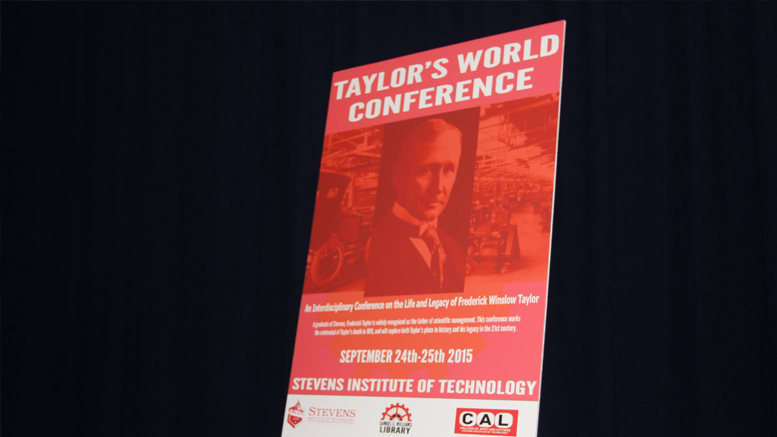“We write Stevens history” is written on the top of this newspaper. I kept this in mind while attending last weeks’ Dean’s Seminar “Taylor’s World” last Thursday, featuring Simon Head, who examined the legacy of Fredrick Winslow Taylor. I realized: we are Stevens history. Each and every Stevens student is contributing to the legacy of this university, and each and every Stevens student will [Editor’s note: probably] do great things.
One such Stevens student was 1883 graduate Fredrick Winslow Taylor. Given the option to attend Harvard University, Taylor instead chose to become a machinist, where he climbed the ranks until becoming chief engineer of the works. It was then that he noticed that workers were not working to their maximal potential, and he began to study and analyze the productivity of both man and machine. Taylor took part in the industrial revolution by breaking down tasks into small steps and focusing on how each person could do their job better.
Taylor is called the father of scientific management, a theory that focuses on improving industrial efficiency. Head pointed to three centuries in which Taylor has had an impact: the late 19th century, during his time working in the steel industry; the 20th century, with his book Principals of Scientific Management, which influenced the production of Ford vehicles and helped bring Japanese “lean production” values to America; and the 21st century, where scientific management is currently being fused with information technology.
The legacy of so-called “Taylorism” extends far beyond manufacturing, Head argued. In warehouses run by Amazon and Walmart, workers’ every move and their every step are monitored by machines. Taylor’s methods have been even used by financial institutions, he added. Traders and managers depend so heavily on algorithms that the abdication of personal responsibility has led to events like the subprime mortgage crisis.
Through these examples, Head concluded that the broad application of Taylor’s scientific management principals may have lead to dark consequences. Who benefits from increased efficiency? Who bears the responsibility for unintended consequences of such sweeping technological change? Taylor’s legacy urges us to consider questions such as these, which is why he’s such an interesting figure to study.
Simon Head, Senior Fellow at the Institute for Public Knowledge at New York University, and the featured speaker of the Deans’ Seminar Series held on September 24, argued that Taylor deserves more recognition than he receives. In fact, Head ranked Taylor among Einstein, Freud, and Darwin in terms of lasting scientific impact.
As for a lesson to impart to Stevens students: know that we are Stevens history, but be sure to take note of the impact our legacy can have.
